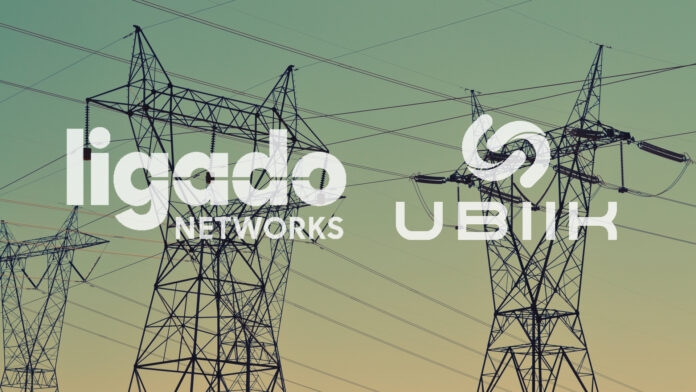US satellite communications provider Ligado Networks is to offer a private LTE solution from Taiwanese advanced metering infrastructure (AMI) and private network provider Ubiik to run in Band 54 spectrum at 1670-1675 MHz. It is targeting the utilities sector, and other mission-critical customers. Band 54 is standardised for 3GPP-based cellular technologies; it is available contiguously across the US.
Ubiik, which has gained considerable success at home in Taiwan, including a $17 million tender from Taiwan Power Company (Taipower) at the start of 2023, has developed a private LTE base station for Band 54 spectrum, under the brand goRAN; the 5MHz chunk at 1670-1675 MHz, affording time-division (rather than frequency division) duplexing (TDD), is presented as a useful private network addition for low-power IoT projects.
It is a “golden opportunity” for critical industries, said Ubiik. TDD separates the uplink and downlink signals by allocating different time slots in the same frequency band, allowing for asymmetric flow for uplink and downlink transmission. Ligado Networks said: “[It] equips utility users with significant flexibility, as different ratios of uplink versus downlink slots may be used to address requirements of mission-critical applications.”
A statement said: “The Band 54 goRAN base station will be particularly useful for utilities deploying private networks… [It] will integrate with chipsets supporting Band 54 and with a utility-hardened LTE endpoint module currently in development.” Ubiik’s recent acquisition of utility networks provider Mimomax Wireless will provide North American utilities with additional expertise in the deployment of multiple large-scale wireless networks, it said.
Sachin Chhibber, chief technology officer at Ligado Networks, said: “Ubiik’s goRAN base station is a significant enhancement to the opportunities the band affords to the critical infrastructure industry – especially utility and other enterprise organisations planning private networks… By eliminating the requirement to pair channels for uplink and downlink, we will be able to offer partners the flexibility to use the spectrum exactly how they need, and with greater efficiencies.”
Tienhaw Peng, chief executive at Ubiik, said: “Given the scarcity of spectrum, being able to secure an optimal 5 MHz slice to build out a private network is a golden opportunity for critical infrastructure customers. Our goRAN base station offers the perfect mix of affordability and ease of deployment combined with the spectral efficiency, interoperability and security brought by LTE. With Ligado, we look forward to providing a solution-in-a-box for building an LTE network – by either utilising a user’s specified core network or one directly built into the base station.”
Last week, Ubiik joined Electricity Canada, representing the electric power industry in Canada, to deliver private LTE networks for utilities in the 900MHz, 1.4GHz, and 1.8GHz bands. The firm, founded in 2016, has developed its proposition around private low-power wide-area (LPWA) connectivity based on the Weightless technology for electricity metering. It has grown its low-power IoT connectivity offerings to include LTE-based NB-IoT and LTE-M.
3GPP Releases 14 and 15 of the LTE standard have made LTE-M and NB-IoT complementary with Weightless LPWAN, enabling Ubiik to offer a hybrid LPWA solution. It launched the first 3GPP Release 15 LTE-M/NB-IoT base station, under the brand goRAN, last year. It introduced a base station, branded freeRAN, to also support unlicensed spectrum for LTE-M earlier this year.
Its freeRAN and goRAN solutions seek to meet demand from utilities for secure and scalable 3GPP technologies, it said. Its private LTE play is because “public LTE networks… impede utilities’ AMI deployments”. It is pushing its private LTE offer as a solution for utilities and also for other mission-critical industry 4.0 sectors. It is targeting new sales in North America, India, Europe, and (per the acquisition of Mimomax) in Australasia.
The company’s $17 million deal with Taipower, announced in January, covers the deployment of an AMI system to host 450,000 additional meters. It is the company’s fourth consecutive AMI win in Taiwan, and “Taiwan’s largest IoT project”, it said. The deal puts it on track to have over one million meters under management by 2024. The firm claimed major wins with Taiwanese utilities in 2018, 2019, and 2020; the latest success with Taipower brings the total value of its AMI contracts to $58 million, covering the installation of 1.17 million meters by 2024, as per the rollout schedule of the Taipower contract.
To hear more from Ubiik, including about Weightless and private LTE in smart grid and metering systems, tune into the RCR Wireless webinar on smart metering on October 19, also with Telit Cinterion, Kigen, and Transforma Insights; sign up here, or by clicking on the image below.


